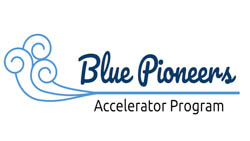Campus News
Emerging ocean conservation leaders set to visit UC Santa Cruz
The Blue Pioneers Program (BPP) Accelerator recently announced its 2021 cohort of international ocean conservation professionals who will visit UC Santa Cruz’s Coastal Science Campus.

The Blue Pioneers Program (BPP) Accelerator recently announced its 2021 cohort of international ocean conservation professionals who will visit UC Santa Cruz’s Coastal Science Campus as part of an eight-week leadership development training program taking place over a span of five months.
The BPP Accelerator, hosted by UCSC’s Coastal Science & Policy Program (CSP), recruits participants from around the globe—with a particular focus on the Asia-Pacific region—and equips them to address complex challenges through systems thinking and design thinking, collaborative problem solving, and rapid solution development.
The 30 participants in this year’s program are mainly early-to mid-career innovators, entrepreneurs, and NGO leaders. Their work intersects the fields of ocean conservation, sustainable food systems, climate change, renewable energy, gender equity, rights of indigenous peoples, and racial justice.
Participants will begin their online learning through the program in November. Then, in March, they’ll travel to UCSC to wrap up their experience with ten days of in-person classes, field trips, and networking events in Santa Cruz, Silicon Valley, and surrounding areas. Shiyu Rachel Wang, assistant director of the program, said that the opportunity to visit UC Santa Cruz is often a draw for participants.
“This program’s goal is to train global leaders, and when we think about the best places to do that, Santa Cruz is definitely state-of-the-art in coastal conservation,” she said. “This region of coastal California is among the most advanced in the world for technology, policy, and science in ocean conservation, and UCSC is a leading force in that.”
Faculty and staff from UC Santa Cruz, Stanford University, and the Middlebury Institute of International Studies collaborate to deliver curriculum throughout the program, alongside executives from social impact organizations. The BPP Accelerator originally launched in 2017 at Middlebury Institute, as part of a larger suite of longstanding global programs initiated by the David and Lucile Packard Foundation and Paradise Foundation.
In 2020, the BPP Accelerator moved to UC Santa Cruz, and it’s currently operating with more than $1 million in grant funding from the Packard Foundation. Yuwei Shi, academic director for the BPP Accelerator and a visiting professor in UCSC’s Coastal Science & Policy Program, says the move to UC Santa Cruz has helped the program grow.
“The beautiful Coastal Science Campus is such a natural fit in terms of physical infrastructure, and the Coastal Science & Policy Program has amazing faculty, staff, and students” he said. “UCSC offers a strong network of relationships.”
Since coming to UC Santa Cruz, the BPP Accelerator has also been able to launch a new grant competition to implement experimental marine conservation projects developed collaboratively by participants. Overall, the program’s focus on real-world, experiential, project-based learning is an aspect it shares with UCSC’s Coastal Science & Policy Program. That’s part of what made the hosting arrangement a good fit, along with the global outlook of both programs.
In the future, program leaders want to build and leverage new partnerships between BPP Accelerator participants and UCSC faculty, students, and staff. Anne Kapuscinski, Director of the Coastal Science and Policy program, said that “the BPP Accelerator is an exciting part of CSP becoming an innovation hub for practical solutions.”
“Oceans and coastal communities everywhere need help now,” she added. “This partnership between CSP and the BPP Accelerator enhances our similar missions to recruit, train, and seed the world with entrepreneurial and diverse leaders in coastal and ocean sustainability.”